
Article I, section v, of the U.S. Constitution provides that "Each House [of Congress] may determine the Rules of its proceedings, punish its members for disorderly behavior, and, with the concurrence of 2-thirds, expel a member." Censure is a grade of subject used past the Senate against its members (sometimes referred to as condemnation or denouncement). A formal argument of disapproval, a censure does not remove a senator from office. Since 1789 the Senate has censured 9 of its members.
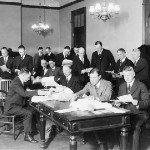
The United States Constitution gives each firm of Congress the power to be the judge of the "elections, returns, and qualifications of its own members" (Article I, section 5). Since 1789 the Senate has carefully guarded this prerogative and has developed its own procedures for judging the qualifications of its members and settling contested elections.
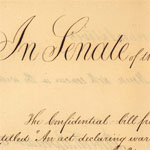
The Constitution grants Congress the sole power to declare war. Congress has declared state of war on 11 occasions, including its first declaration of war with Bully U.k. in 1812. Congress approved its last formal proclamation of war during World State of war Ii. Since that time information technology has agreed to resolutions authorizing the employ of war machine force and continues to shape U.S. military policy through appropriations and oversight.

Article I, section five, of the U.S. Constitution provides that each house of Congress may "punish its members for disorderly behavior, and, with the concurrence of two-thirds, expel a member." Since 1789 the Senate has expelled just 15 members.

The Senate has a long history of using the delay—a term dating back to the 1850s in the The states—to delay debate or block legislation. Unlimited fence remained in place in the Senate until 1917, when the Senate adopted Rule 22 that immune the Senate to terminate a debate with a two-thirds majority vote—a process known as "cloture." In 1975 the Senate reduced the number of votes required for cloture from two-thirds (67) to three-fifths (lx) of the 100-fellow member Senate.
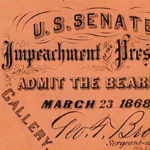
Under the Constitution, the House of Representatives has the power to impeach a government official, in issue serving as prosecutor. The Senate has the sole power to comport impeachment trials, essentially serving every bit jury and judge. Since 1789 the Senate has tried 20 federal officials, including three presidents.

Congress has conducted investigations of malfeasance in the executive branch—and elsewhere in American society—since 1792. The need for congressional investigation remains a disquisitional ingredient for restraining government and educating the public.
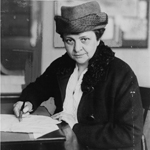
The Constitution provides that the president "shall nominate, and by and with the Advice and Consent of the Senate, shall appoint Ambassadors, other public Ministers and Consuls, Judges of the Supreme Court, and all other Officers of the U.s.a.… (Article ii, Section ii)." The Senate has always jealously guarded its power to review and approve or decline presidential appointees to executive and judicial branch posts.

The Senate is governed past the Constitution, a set of standing rules, precedents established in the course of the legislative process, and special rules of procedure adopted by statute for item types of legislation. These rules determine how bills and resolutions are moved towards passage, the structure of Senate committees, how debate proceeds on the bedroom floor, and how members cast votes.
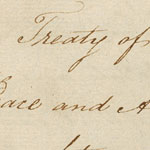
The Constitution gives the Senate the power to approve, past a two-thirds vote, treaties made by the executive branch. The Senate has rejected relatively few of the hundreds of treaties it has considered, although many have died in committee or been withdrawn by the president. The Senate may also meliorate a treaty or adopt changes to a treaty. The president may as well enter into executive agreements with strange nations that are not discipline to Senate approval.
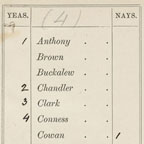
The Senate takes action on bills, resolutions, amendments, motions, nominations, and treaties by voting. Senators vote in a diverseness of ways, including coil telephone call votes, voice votes, and unanimous consent.











0 Response to "What Is One Power Unique to the House of Representatives"
Enregistrer un commentaire